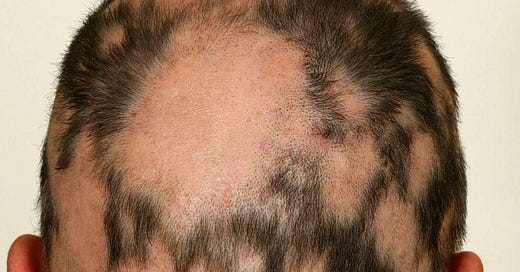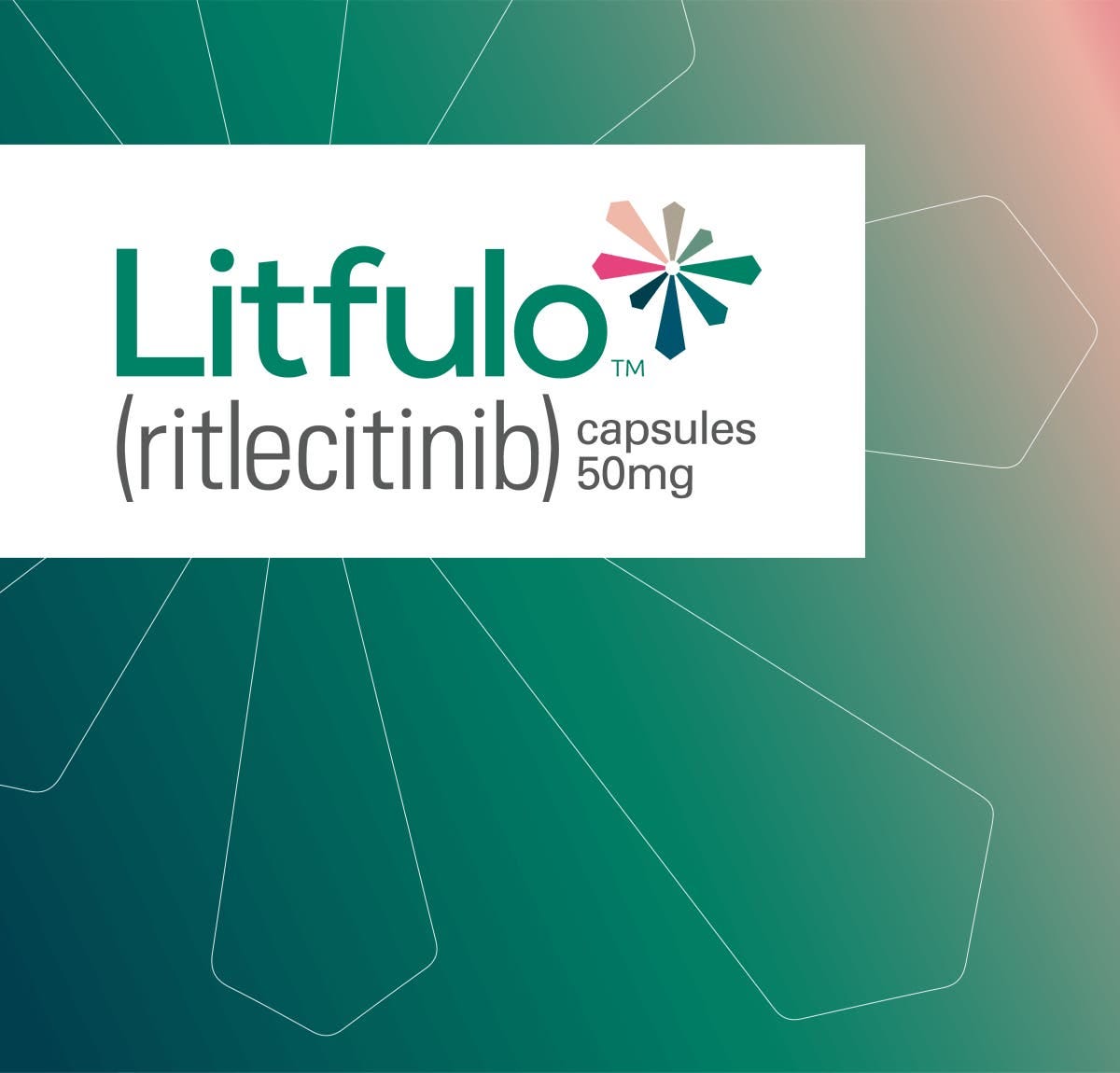Alopecia - Have We Made A Breakthrough?
As a clinician - I get asked about lots of things. This is worse when you work in primary care as you are expected to know a lot of information.
Alopecia is certainly something I didn’t know a great deal about. This is unsurprising as it accounts for only 2% of all refers in primary care. This was until I met a patient with severe alopecia where I obtained an insight into the disease, treatments and psychological impact. Her outlook was quite bleak however, with a new treatment sanctioned by NICE, I’m hoping this will improve patient outcomes.
This weeks newsletter will look at alopecia exploring its pathophysiology, current treatment options and ritlecitinib, the new drug on the market.
What is alopecia?
Alopecia Areata is a common condition characterised by sud- den onset of patchy hair loss without signs of skin inflammation or scarring. The pattern of hair loss can help further define the nature of the disease:
Hair loss from the scalp is termed alopecia totalis.
Hair loss from the body is termed alopecia universalism.
It is in effect a T-cell dependent autoimmune disease. It is normally diagnosed clinically through noticing patchy hair loss with characteristic “exclamation mark” hairs in the peripheral. Often a fungal culture or scalp biopsy can be done to exclude other causes.
What is the prognosis?
Approximately 50% of patients with alopecia will regain their hair within 1 year. It is assumed that 80% of patients will develop further episodes of alopecia once effected.
How can we treat Alopecia?
Understandably, alopecia can have significant effects on patient’s mental health so early treatment is advised. Aside from wearing wigs and makeup (if there is hairless from the eyebrows etc), there are some treatment options that are used
Steroid creams - either as creams or even intradermal injections
Immunotherapy
So what is this breakthrough?
The release of ritlecitinib, a janus kinase inhibitor is the latest immunotherapy agent to assist with healing. For those who follow me on LinkedIn, I wrote a few weeks ago how immunotherapy has transformed the world of rheumatological disease. The same goes for all types of autoimmune diseases including alopecia. It will be interesting to see the results of independent studies but the introductory study conducted by Pfizer showed promising results.
For example, 23% of patients treated with LITFULO 50 mg had 80% or more scalp hair coverage (SALT≤20) after six months compared to 1.6% with placebo.
For now, we won’t have access to the medication. Initially the application was rejected due to the cost until Pfizer promised to reduce the price. Therefore, pending a clean financial deal between Pfizer and NICE, we should find ritlecitinib in our armoury of treatments!
Until next time..
Check us out on our various pages
Website: www.paretoeducation.co.uk
Instagram: www.instagram.com/pareto_ed
Twitter: www.twitter.com/pareto_ed
Youtube: https://bit.ly/3DPm23c
Email: paretopaeducation@gmail.com





